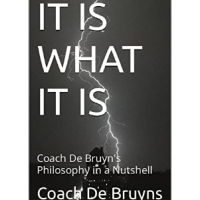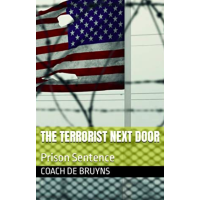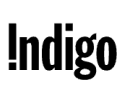Featured
Get and Keep a Man: A Long-term Relationship Perspective
Get and Keep a Man: A Long-Term Relationship Perspective Are you tire..
How to Choose and Keep a Wife: A Practical Guide for Men eBook
How to Choose and Keep a Wife is a direct, no-nonsense guide for men who are serious about marriage ..
IT IS WHAT IT IS: Coach De Bruyns' Philosophy
Discover the essence of existence and unlock your true potential with IT IS WHAT IT IS: ..
Live Your Life as a Man
In a world where men are constantly told to suppress their instincts, abandon their leadership roles..
Polygyny Maybe Not?: A Practical Guide to Monogamy
Discover the Path to Lasting Monogamy: A Summary of Polygyny Maybe Not? A Guide to Monogamy by Coach..
Polygyny Maybe?: A Practical Guide to Polygyny eBook
Unlock the Secrets to a Thriving Polygynous Life: "Polygyny Maybe?: A Practical Guide to Polygyny..
The Terrorist Next Door: Hate at First Sight eBook
In "The Terrorist Next Door: Hate at First Sight," dive into the gripping tale of Jack Higgins, a 25..
The Terrorist Next Door: Prison Sentence eBook
In "The Terrorist Next Door: Prison Sentence," author Coach De Bruyns weaves a gripping ta..
Bookings
Blogs

Strategy for Sexual Fulfillment
Welcome back to the channel, everyone. This is the third episode in my ongoing series on sex, marriage, and the powerful dynamics that either make or break a relationship. In today’s video, Strategies for Sexual Fulfillment in Marriage, I went much deeper than usual and gave men a complete, no-fluff blueprint for keeping the sexual […]

Virgin Sex and Muslim Culture
The discussion is rooted in Quran-first principles, historical hadiths, and practical advice, emphasizing patience, consent, and mutual fulfillment to build strong marriages. He promotes his book, Polygyny Maybe? (linked in the post) for further reading. The content flows logically from the cultural context of virginity and lack of knowledge, to courtship and marriage processes, and […]

Should a Dresscode be Imposed on Society?
Hello everyone, welcome back to my channel. In my video “Why there must be a prescribed dress code,” I explained why the idea that clothing is purely a personal choice is not only wrong but actually dangerous for any healthy society.Most people today say, “It’s my body, my choice—if I want to walk around naked, […]



























